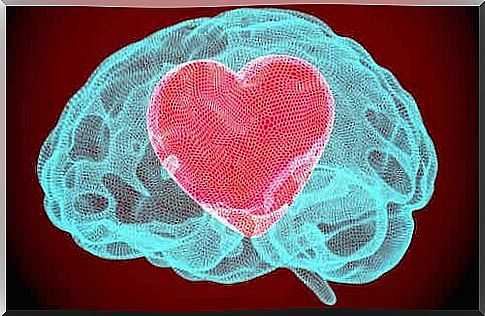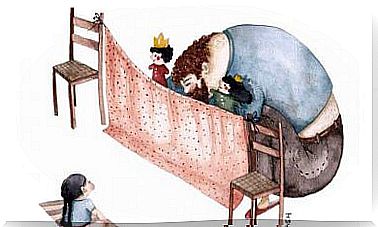Cognitive Goodness: Kindness As A Psychological Commitment

Being a little nicer to others could change our lives. However, we don’t have time. We live in a fast-paced world where we allow ourselves to be overcome by haste, our own worries, anxiety, and often the accumulated fatigue and lack of willpower. However, cognitive kindness is a resource that could help us.
It’s a new concept that deserves to be explored further. Advances in the understanding of human cognition show that reasoning and thinking take time, willpower, and energy. However, we tend to have recourse to simple automatisms, to prejudices and to follow certain impulses.
We are, so to speak, cognitive miserly. We try to finalize as quickly as possible the judgments that we make to limit energy expenditure. It affects our relationships. This is what makes, for example, that we are less and less close and empathetic with others.
It is always easier to judge than to seek to understand. Because of this, the company loses sensitivity and becomes cold, even, is selfish. Practicing cognitive kindness would undoubtedly be the best answer to this scenario. Let’s see what it is.

Cognitive goodness: what does it consist of?
Cognitive goodness goes beyond emotional intelligence. While the latter allows us to deal with emotions, the former attempts to reorient our way of dealing with reality in a more friendly way. It would be about learning to think and to take care of what surrounds us in a more attentive and even sensitive way.
If we now wonder what cognitive science is, it should be noted that it is an interdisciplinary field. This domain shapes the mind, its processes, its functions. It refers to language, memory, reasoning, attention …
The purpose of studying kindness is to understand why the brain can motivate us to act non-affectionately towards the people around us. The term cognitive goodness is fairly recent. It has been used in several TED conferences by American psychologist Karen Yu.
In these lectures, this psychologist wonders why, since the mind is our best individual resource, we do not make it a gentler entity. In an increasingly complex world, we need this dimension to shape a more promising present and future. Let’s dig deeper.
We continue to reinforce false myths about kindness
Today, credit continues to be given to a series of ideas that belittle the meaning of kindness. They are as follows:
- Being kind makes you vulnerable. This is completely distorted reasoning, for it is precisely kindness that allows us to connect more authentically with others.
- Kindness makes you weak. To this day, we continue to reinforce the myth that “who is good is naïve”.
- Being good is a waste of time. This is another misconception. Studies such as the one conducted at Tohoku Gakuin University (Japan), for example, indicate that those who perform acts of kindness and altruism are happier and more satisfied.
- If you are kind at work, others will take advantage of you. Indeed, this is another perception that we tend to believe when it comes to being part of social settings, such as schools or work environments. The truth is, if we all used cognitive goodness, we would do much better overall, as a human society.
Cognitive goodness as a strategy to improve our brain and coexistence
Cognitive goodness goes beyond the emotional aspect. It integrates thoughts, reasoning and behaviors. The research explains something important: benevolence involves caring for and caring for others and also a willingness to understand others in their circumstances.
To carry out these processes, we have to make a series of cognitive efforts. It is a question of cutting the autopilot to avoid prejudices and to reason in a more thoughtful way. Only then can we allow ourselves to be more sensitive to the needs of others.

How do you put this cognitive skill into practice?
Cognitive goodness will not appear in us overnight. It is not easy to activate it, as it requires doing a deep job of deactivating biases, negative thought patterns and rephrasing ideas. For starters, we should all stop prejudging.
Nothing is more harmful to coexistence than judging without knowing, like drawing your own conclusions without having connected to the reality of the other. We must put aside prejudices.
Likewise, kindness is not just a feeling, it requires actions: it involves making decisions and carrying them out. For example, it is not enough to perceive that someone seems worried, it is necessary to ask them what they need.
In essence, being more cognitively caring requires combining emotional intelligence with attention, thinking, decision-making, and values-driven behaviors. Such know-how is complex, but the results can be wonderful and even more so under the current circumstances.
Let’s practice benevolence and transform this little world a little more. Let’s keep this in mind.










